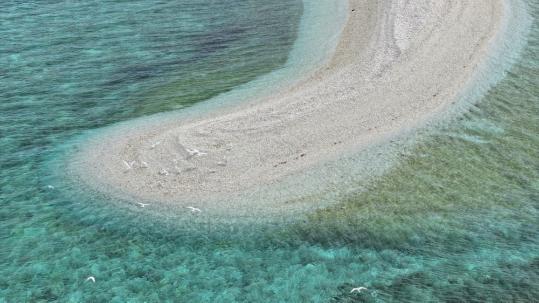
Black-naped terns rest on the cay of Xianbin Reef. (Photo provided to chinadaily.com.cn)
The frequent human activities by the Philippines in recent months have started causing a certain degree of environmental damage to Xianbin Reef, according to a report released in Beijing on Friday about the coral reef ecosystem of the reef in the Nansha Islands.
This conclusion was based on recent field investigations and remote sensing observations, leading China to pledge enhanced ecological monitoring and protection efforts in the South China Sea, Chinese scientists said.
Part of China's Nansha Islands and located east of Ren'ai Reef, Xianbin Reef falls under the jurisdiction of Sansha, South China's Hainan province.
The China Coast Guard also reported recently that Philippine Coast Guard vessels had illegally intruded into the adjacent waters of Xianbin Reef and Ren'ai Reef without permission from the Chinese government.
Between May and July, a comprehensive assessment of Xianbin Reef was conducted by the South China Sea Development Research Institute under the Ministry of Natural Resources, in collaboration with other relevant departments and field research stations.
The report found that around the 23 survey spots set up by the scientific expedition team, the average coverage of reef-building coral was 24.7 percent, with a maximum of 51.3 percent, which is relatively high compared to major coral reef distribution areas around the world.
According to the report, Xianbin Reef is home to 236 species of reef-building coral, accounting for 64 percent of the recorded species of reef-building coral in the Nansha Islands.
"Although isolated instances of coral bleaching were observed, this is due to seasonal warming as it is currently summer. No coral diseases were found," said Wei Zheng, a senior engineer at the South China Sea Development Research Institute.
The scientific expedition team conducted material analysis of coral debris from the six cays of Xianbin Reef and found no terrestrial material input, proving that the cays are naturally formed.
The report also shows that the cays at Xianbin Reef have sufficient materials supporting their development and formation, and their locations and geomorphology comply with natural laws.
"This indicates that the claims made by the Philippines about China artificially depositing coral debris in Xianbin Reef, leading to mass coral bleaching and death in the area, are completely unfounded," Wei said.
However, the frequent human activities by the Philippines in recent months have started causing a certain degree of environmental damage to the reef, said Xiong Xiaofei, chief scientist from the South China Sea Ecological Center.
During a field investigation in May, Xiong and his team observed the presence of the Philippine Coast Guard vessel MRRV-9701, which had been anchored in the lagoon of Xianbin Reef since April.
"We also observed some Philippine fishing boats, and witnessed littering and discarded fishing nets," he said, noting that the expedition team also observed Filipinos throwing cigarette butts into the sea.
Chen Xiangmiao, deputy director of the Marine Science Research Institute at the National Institute for South China Studies, said: "We speculate that the actions of the Philippines are an attempt to repeat their past tactics, as they did with Ren'ai Reef and Huangyan Island, trying various means to establish a long-term presence at Xianbin Reef through fishing vessels and coast guard ships, then asserting their claims over the reef and attempting to occupy it."
"They have also been spreading rumors in the international community, claiming that China intends to construct 'artificial islands' at Xianbin Reef, which we have never done at all. The facts prove that all these claims are fabricated lies."
"The international community should also clearly see the shameless face of the Philippines," he added.
Wei, from the South China Sea Development Research Institute, said further efforts should be made in the future to strengthen the investigation, assessment, monitoring, early warning and protection of Xianbin Reef and its surrounding waters, to reduce the adverse impacts brought by human activities.











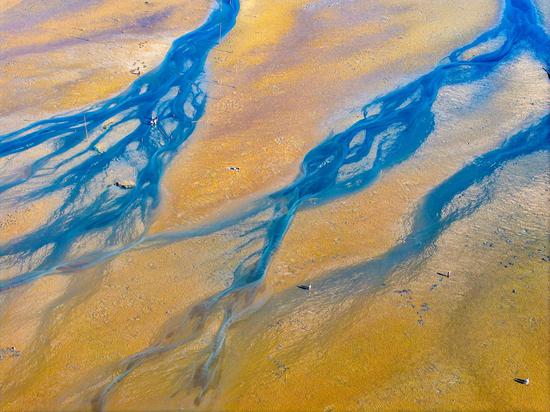









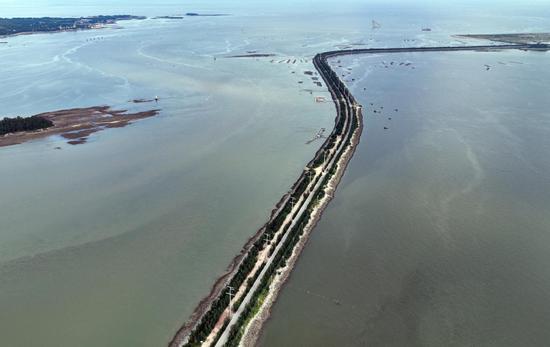

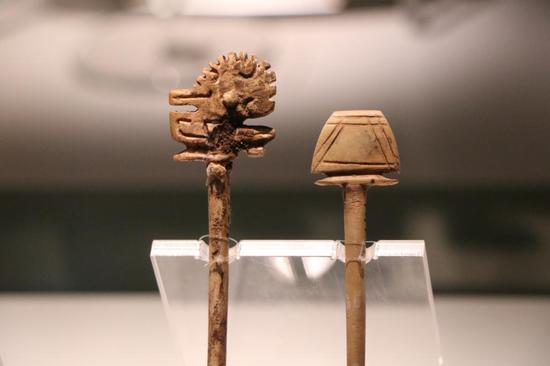










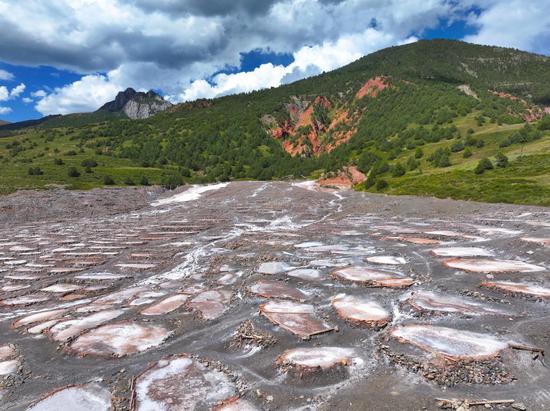















 京公網(wǎng)安備 11010202009201號(hào)
京公網(wǎng)安備 11010202009201號(hào)